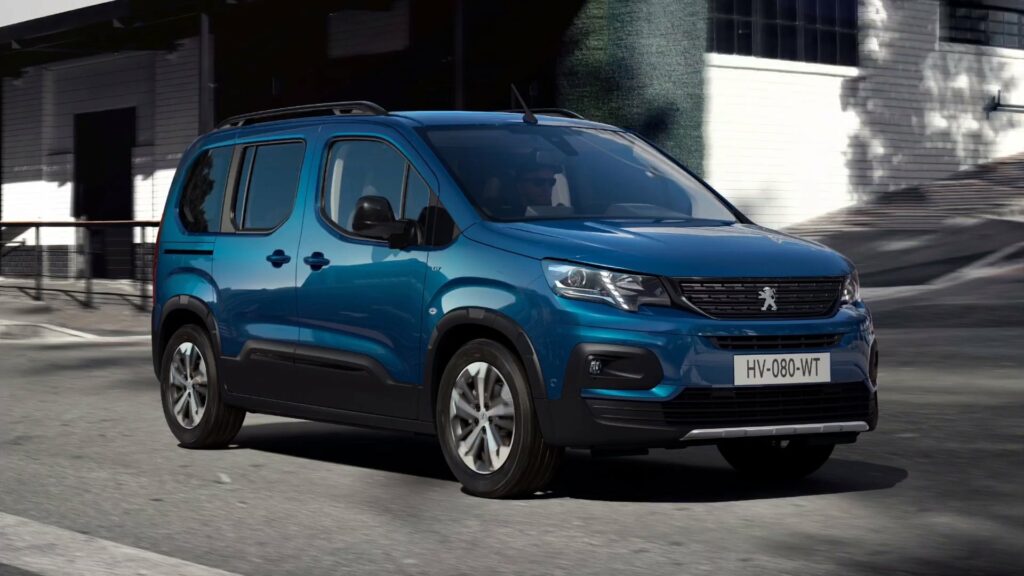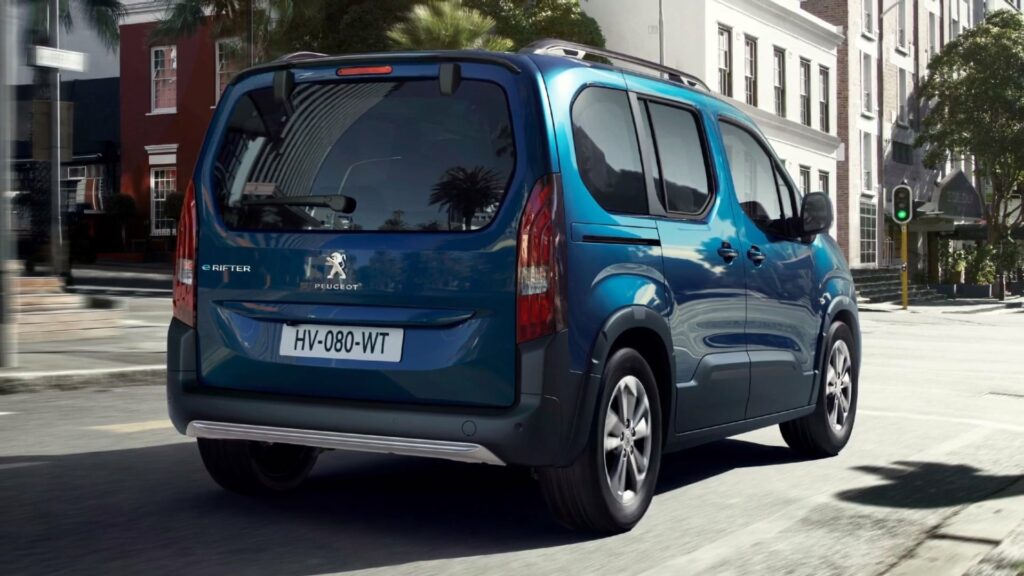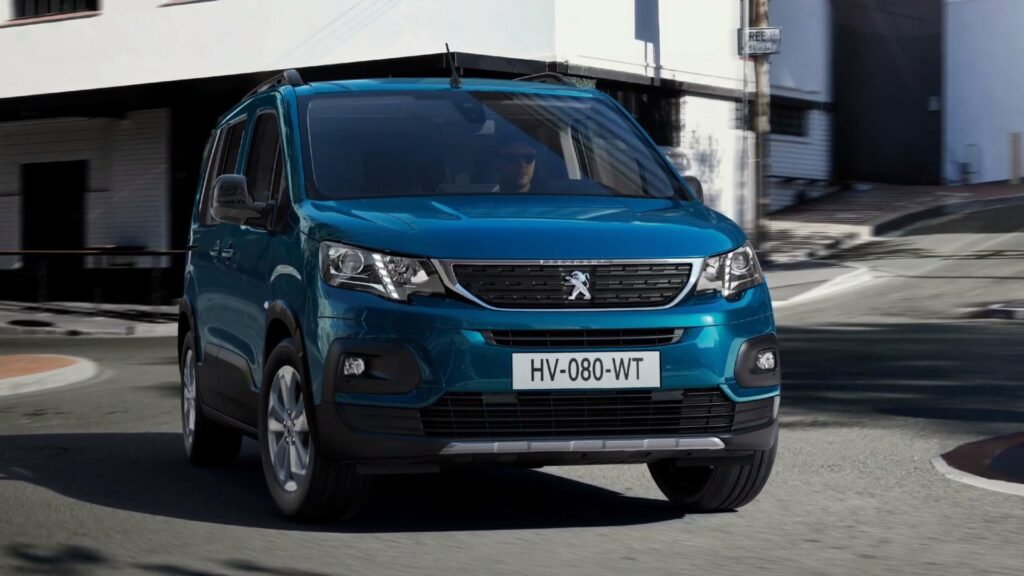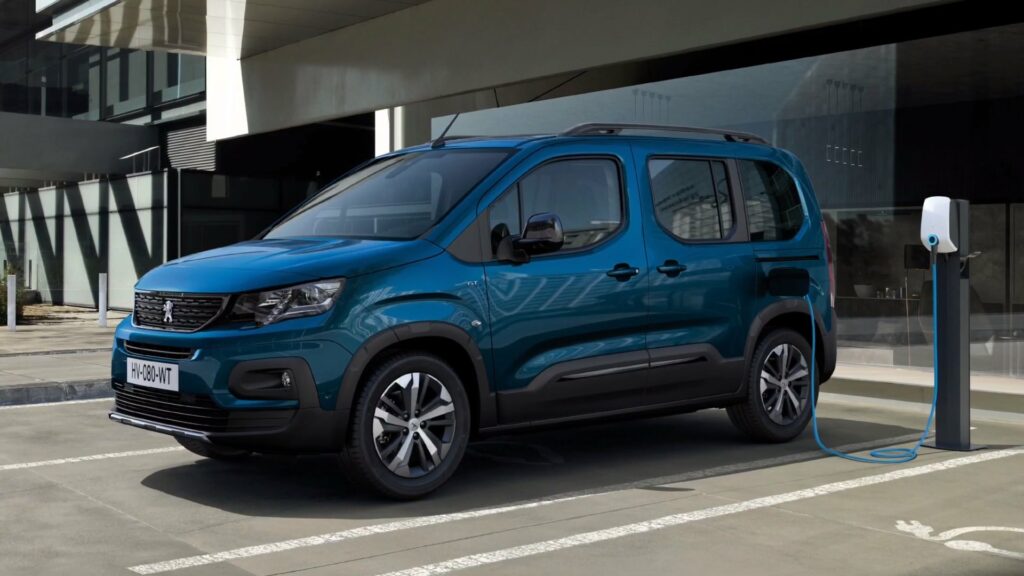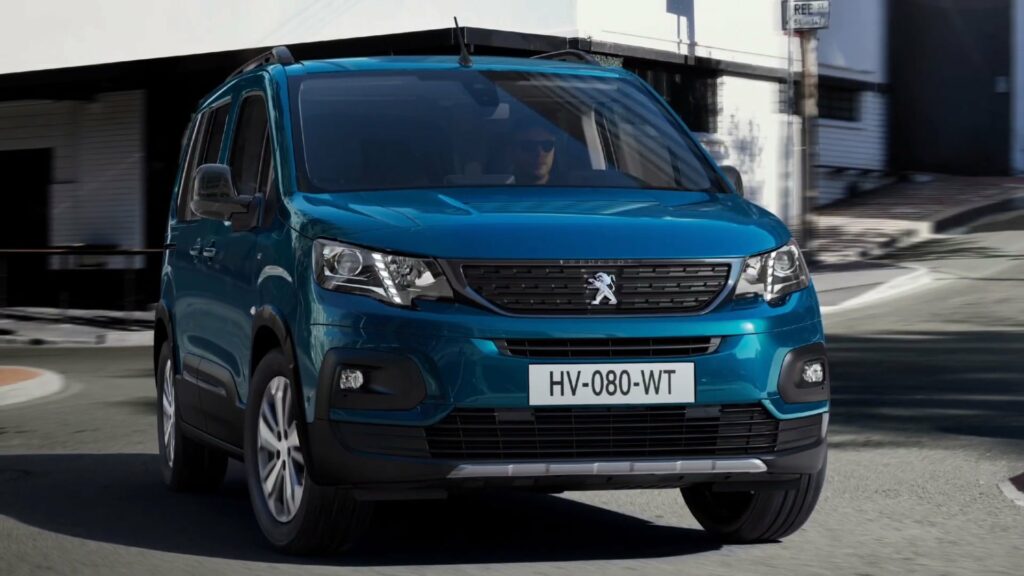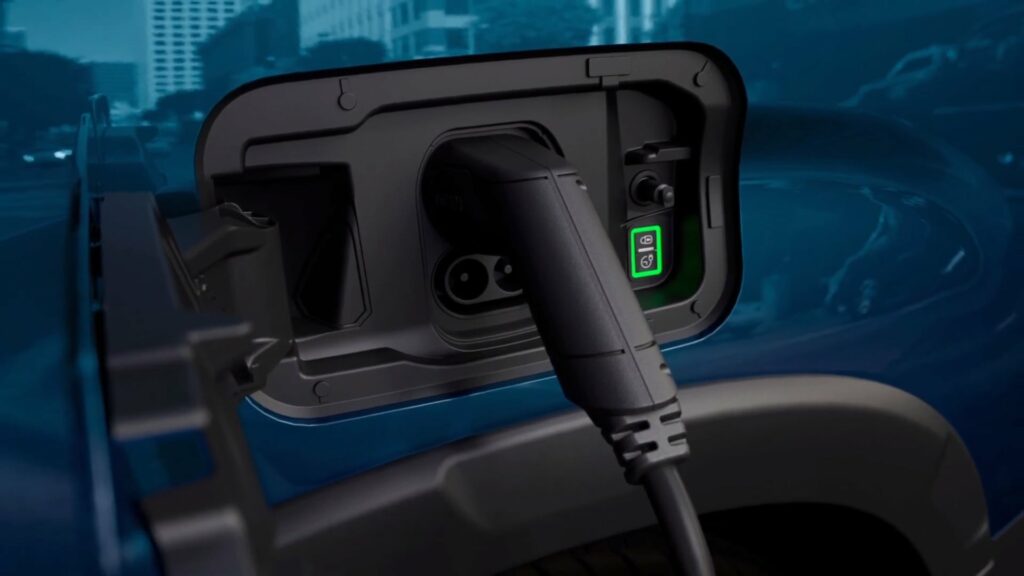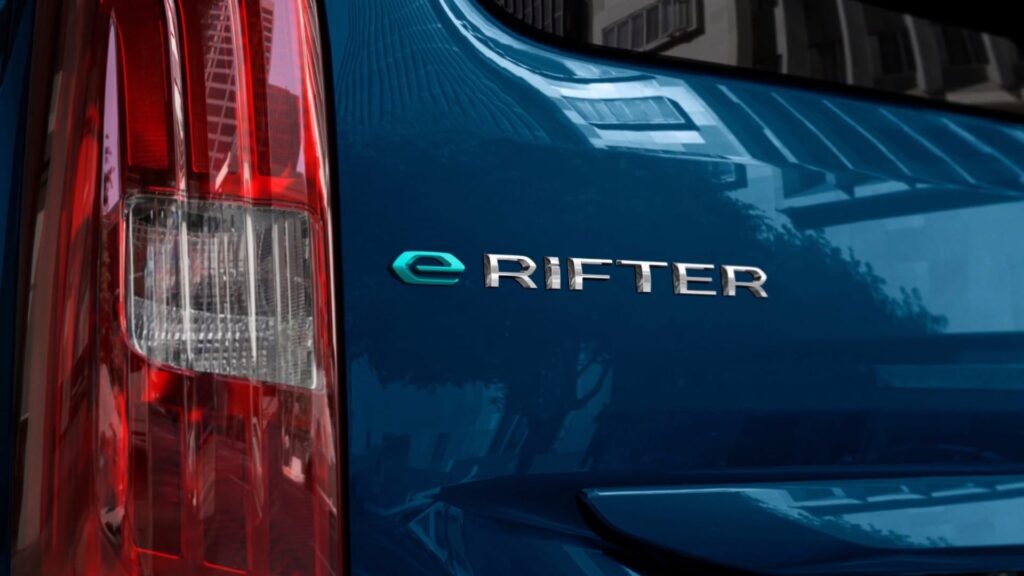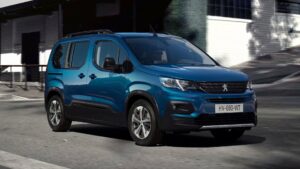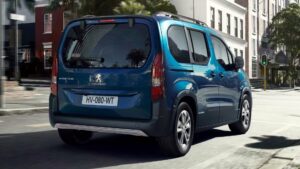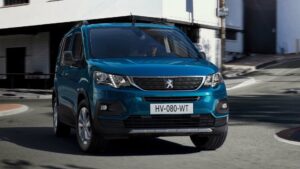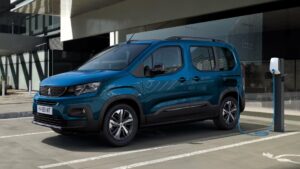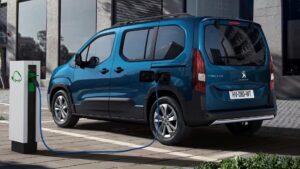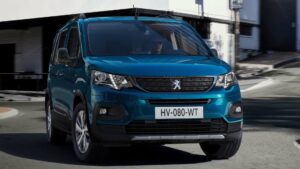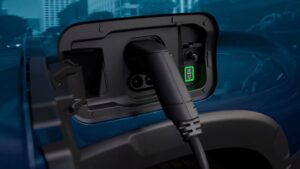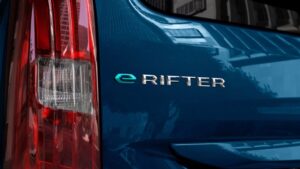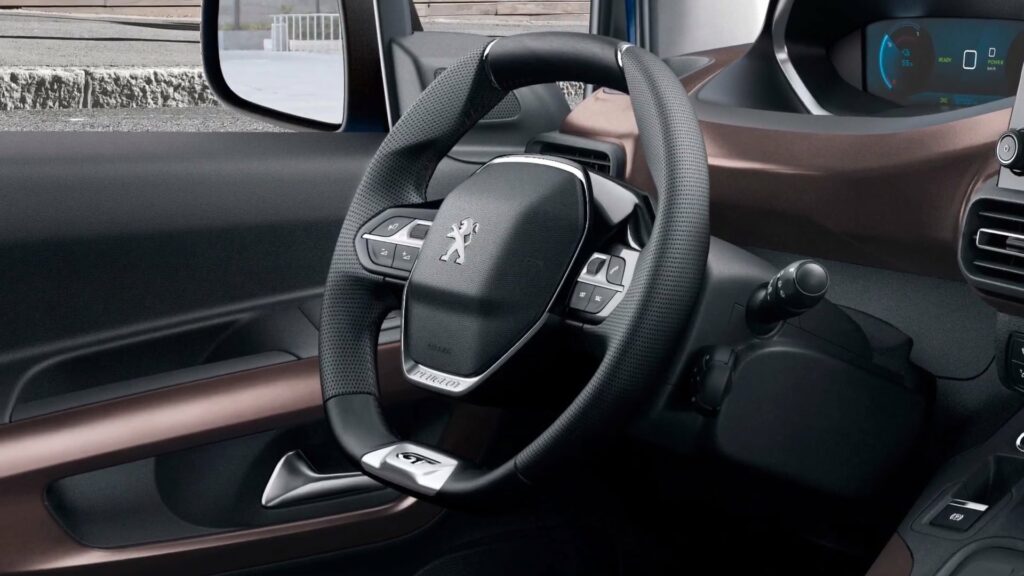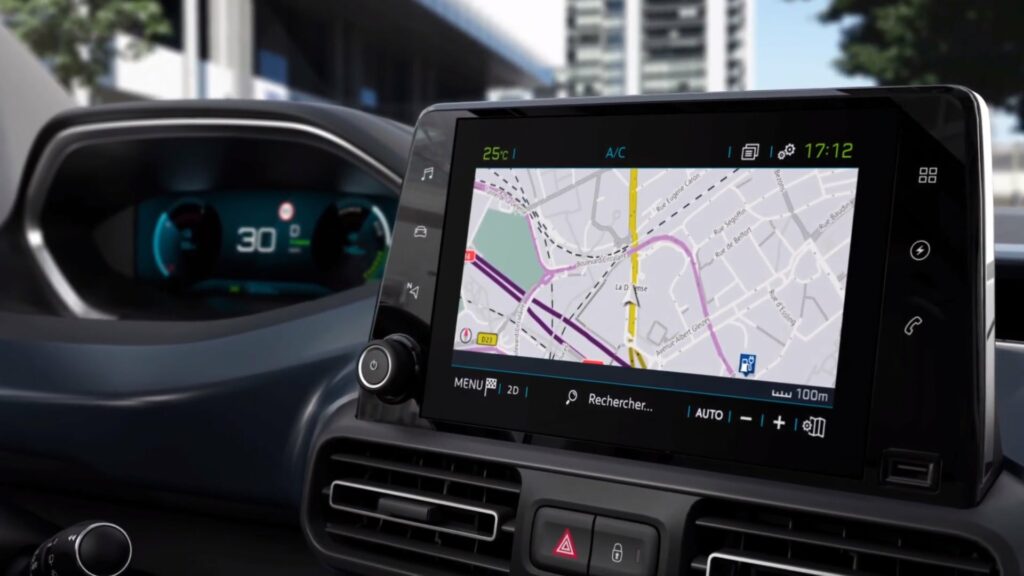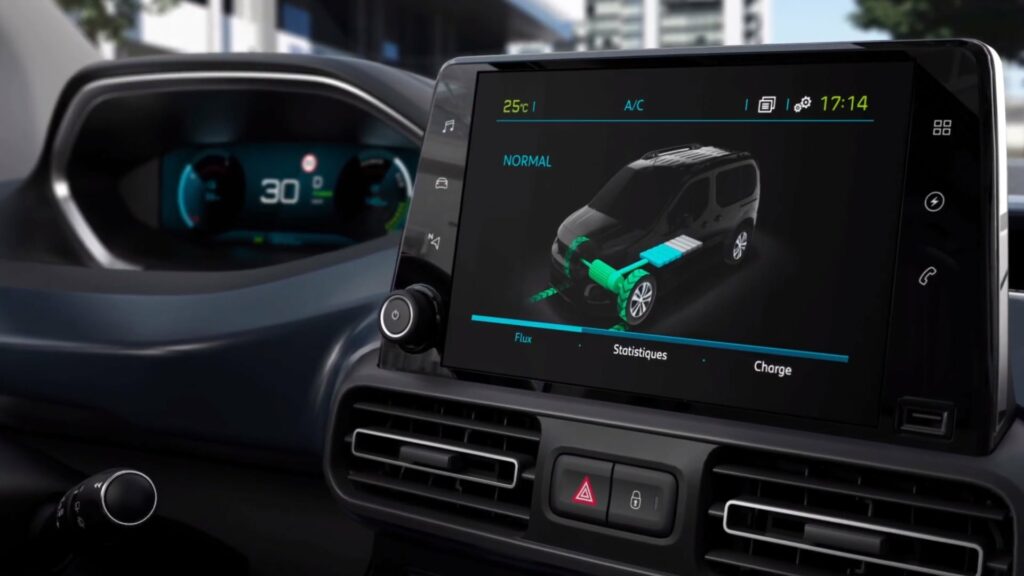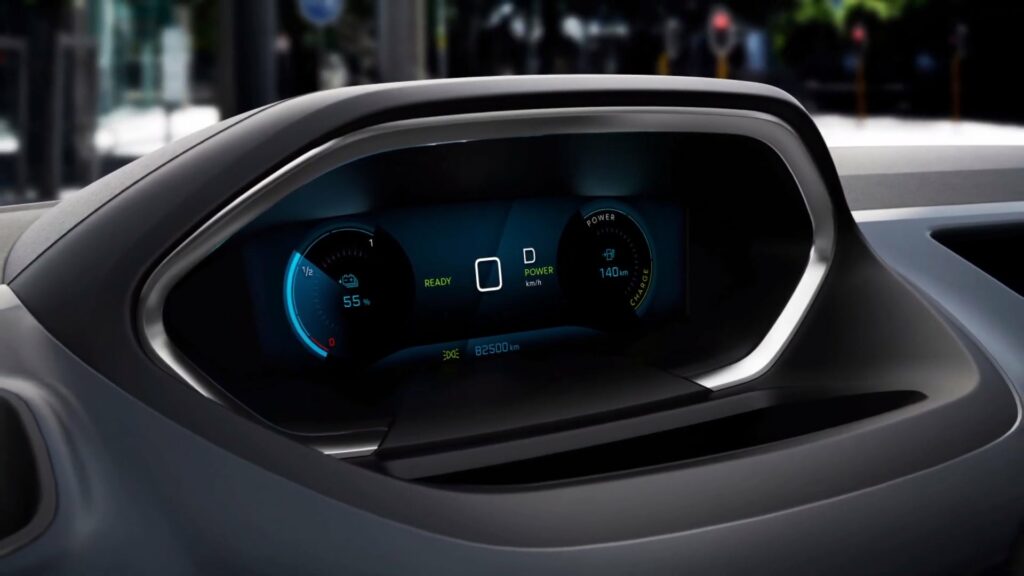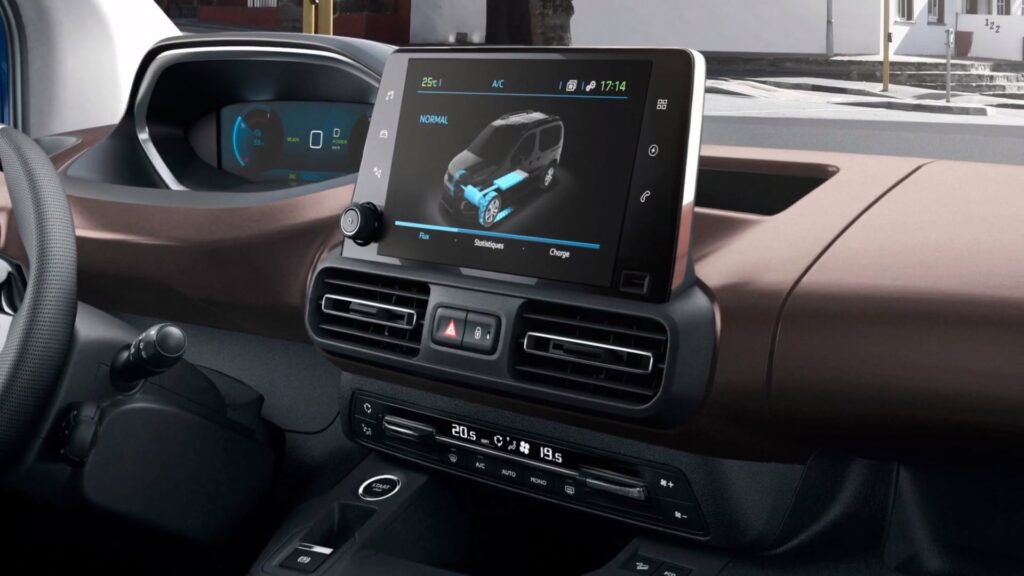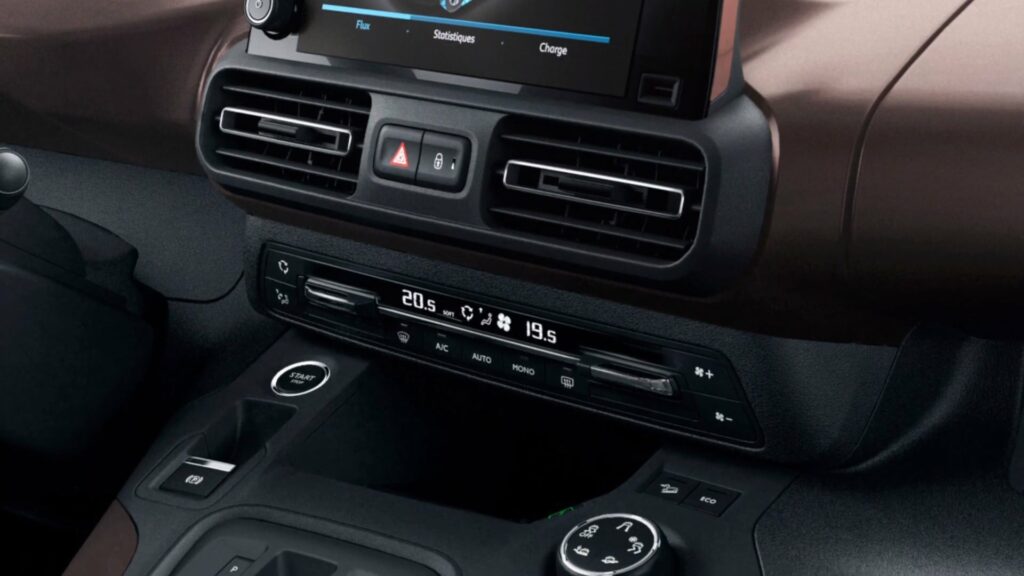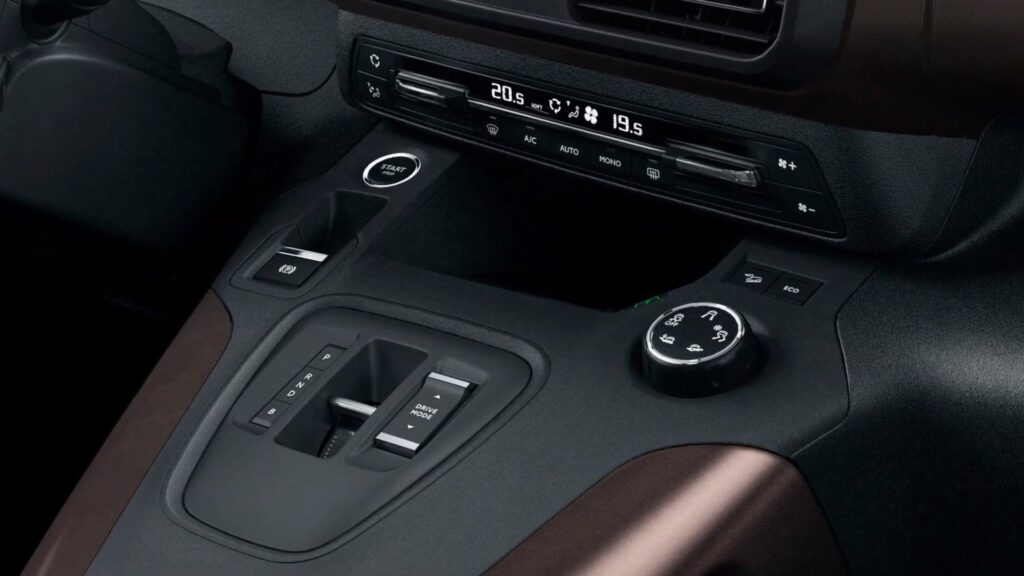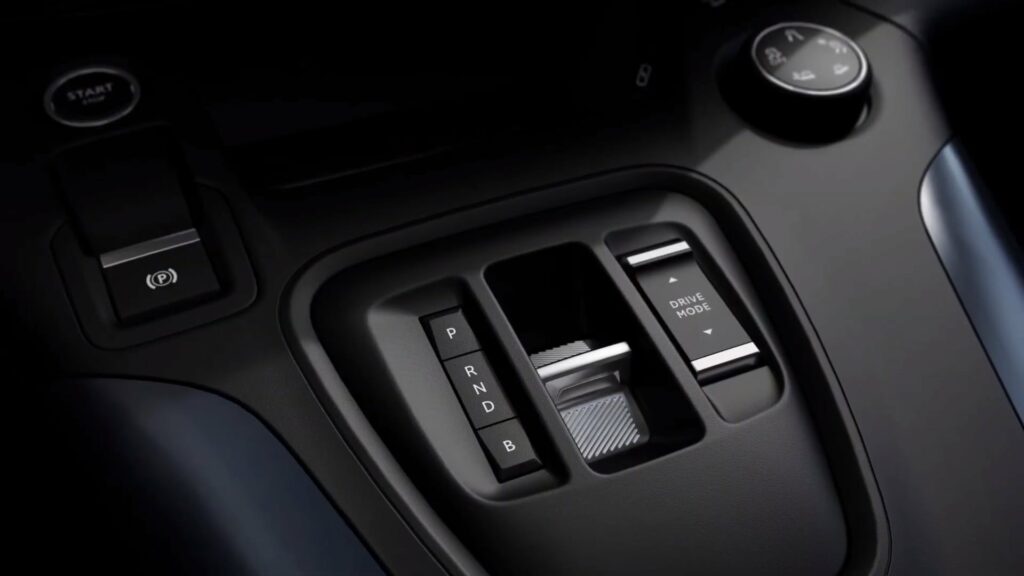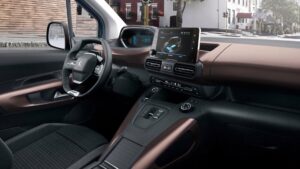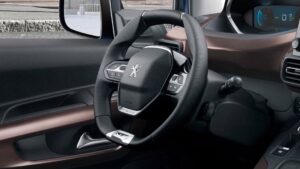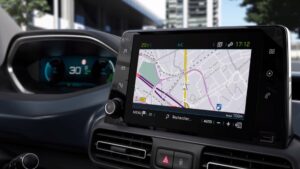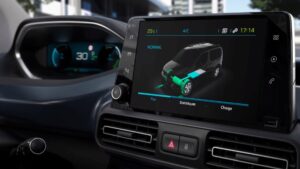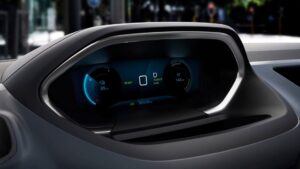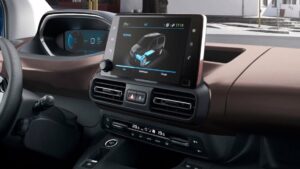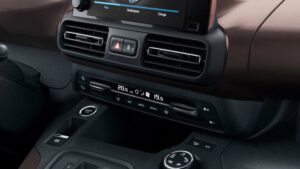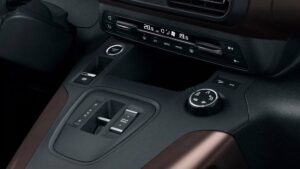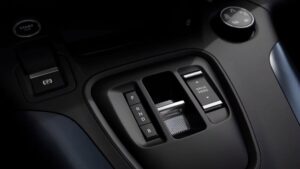Peugeot e-Rifter Standard 50 kWh
The Peugeot e-Rifter Standard 50 kWh is an electric vehicle based on the Peugeot Rifter van. It is equipped with a 50 kWh battery, which provides a range of up to 200 km on a single charge according to WLTP standards.
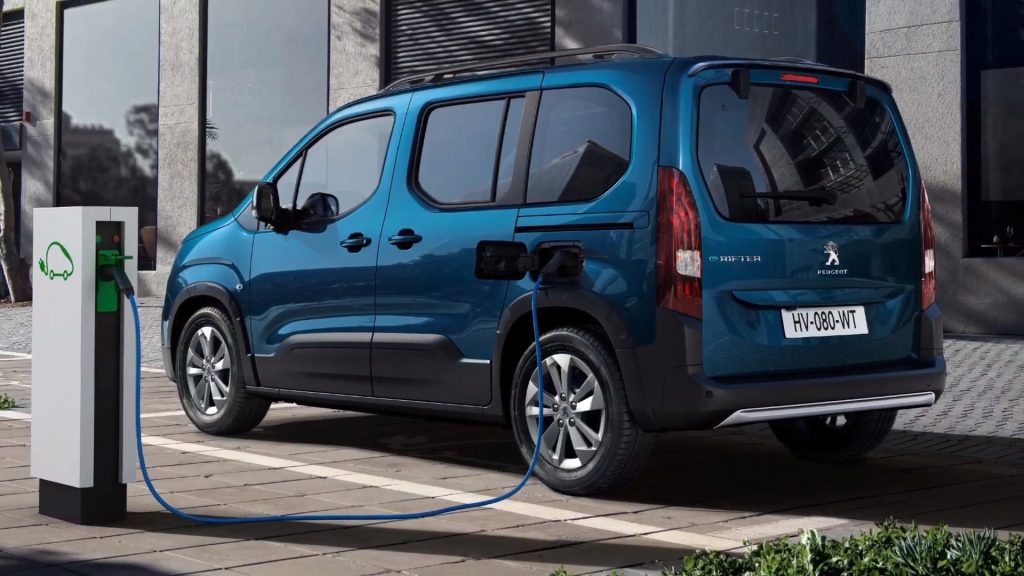
The e-Rifter has a front-mounted electric motor that provides 134 horsepower (100 kW) and 192 lb-ft (260 Nm) of torque, allowing it to accelerate from 0 to 62 mph (100 km/h) in 11.7 seconds. The top speed is limited to 83 miles per hour (135 km/h) to conserve battery life.
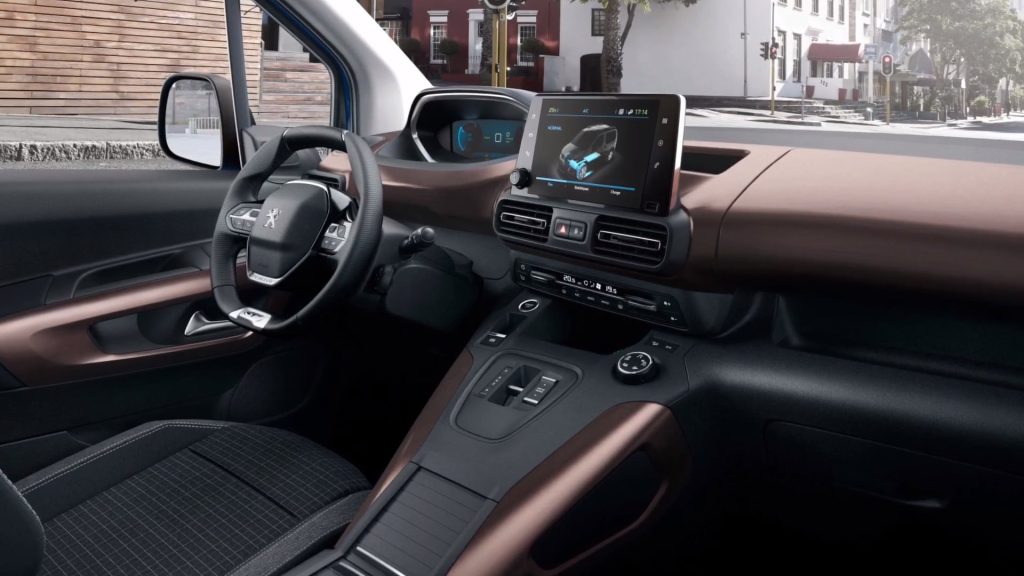
The car has a spacious cabin with 7 seats and a maximum cargo capacity of 4,000 liters. It is also equipped with a 7-inch touchscreen infotainment system, air conditioning, and a number of safety features such as lane departure warning and automatic emergency braking.
The Peugeot e-Rifter can be charged from a standard household outlet or at a public charging station. Using a 100kW DC fast charger, the battery can be charged from 0 to 80% in just 30 minutes.
| Performance | |
| Acceleration 0 – 100 km/h | 11.7 sec |
| Top Speed | 135 km/h |
| Electric Range | 200 km |
| Total Power | 100 kW (136 PS) |
| Total Torque | 260 Nm |
| Drive | Front |
| Battery and Charging | |
| Battery Capacity | 50.0 kWh |
| Battery Useable | 45.0 kWh |
| Europe | |
| Charge Port | Type 2 |
| Port Location | Left Side – Rear |
| Charge Power | 7.4 kW AC |
| Charge Time (0->200 km) | 7h15m |
| Charge Speed | 28 km/h |
| Fastcharge Port | CCS |
| FC Port Location | Left Side – Rear |
| Fastcharge Power (max) | 99 kW DC |
| Fastcharge Time (20->160 km) | 31 min |
| Fastcharge Speed | 270 km/h |
| Energy Consumption | |
| EVDB Real Range | |
| Range | 200 km |
| Vehicle Consumption | 225 Wh/km |
| CO2 Emissions | 0 g/km |
| Vehicle Fuel Equivalent | 2.5 l/100km |
| WLTP Ratings (TEL) | |
| Range | 282 km |
| Rated Consumption | 196 Wh/km |
| Vehicle Consumption | 160 Wh/km |
| CO2 Emissions | 0 g/km |
| Rated Fuel Equivalent | 2.2 l/100km |
| Vehicle Fuel Equivalent | 1.8 l/100km |
| WLTP Ratings (TEH) | |
| Range | 269 km |
| Rated Consumption | 207 Wh/km |
| Vehicle Consumption | 167 Wh/km |
| CO2 Emissions | 0 g/km |
| Rated Fuel Equivalent | 2.3 l/100km |
| Vehicle Fuel Equivalent | 1.9 l/100km |
| TEL = Test Energy Low | TEH = Test Energy High | |
|
Rated = official figures as published by manufacturer. Rated consumption and fuel equivalency figures include charging losses.
|
|
|
Vehicle = calculated battery energy consumption used by the vehicle for propulsion and on-board systems.
|
|
| Real Energy Consumption Estimation between 150 – 321 Wh/km | |
| City – Cold Weather * | 214 Wh/km |
| Highway – Cold Weather * | 321 Wh/km |
| Combined – Cold Weather * | 265 Wh/km |
| City – Mild Weather * | 150 Wh/km |
| Highway – Mild Weather * | 265 Wh/km |
| Combined – Mild Weather * | 200 Wh/km |
| Energy use for each trip will vary considerably depending on the driver and the conditions. Therefore, we have provided a range of estimates which can be useful in developing an understanding of the potential benefits of this technology. | |
| Dimensions and Weight | |
| Length | 4403 mm |
| Width | 1921 mm |
| Width with mirrors | 2107 mm |
| Height | 1878 mm |
| Wheelbase | 2785 mm |
| Weight Unladen (EU) | 1765 kg |
| Gross Vehicle Weight (GVWR) | 2305 kg |
| Max. Payload | 615 kg |
| Cargo Volume | 571 L |
| Cargo Volume Max | 2126 L |
| Cargo Volume Frunk | 0 L |
| Roof Load | 100 kg |
| Tow Hitch Possible | Yes |
| Towing Weight Unbraked | 750 kg |
| Towing Weight Braked | 750 kg |
| Vertical Load Max | 50 kg |
| Miscellaneous | |
| Seats | 7 people |
| Isofix | Yes, 2 seats |
| Turning Circle | 10.9 m |
| Platform | PSA EMP2 |
| Car Body | Small Passenger Van |
| Segment | N – Commercial |
| Roof Rails | Yes |
| EV Dedicated Platform | No |
Home and Destination Charging (0 -> 100%)
A public charging station is required to use the highest possible charging rate. The EVSE/charging station’s charging capacity affects how long it takes to fully charge the battery. The table below shows all possible options for fully charging the Peugeot e-Rifter Standard 50 kWh .
In Europe, plugging an electric car into an outlet is often as easy as plugging it into a household outlet, but there are differences from country to country. The table below shows the different ways to charge the Peugeot e-Rifter Standard 50 kWh , but in some countries some chargers may not be available.
Type 2 ( IEC 62196)
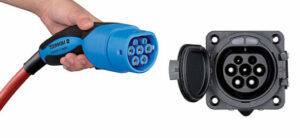
| Charging Point | Max. Power | Power | Time | Rate |
| Standard 7.4 kW On-Board Charger | ||||
| Wall Plug (2.3 kW) | 230V / 1x10A | 2.3 kW | 23h15m | 9 km/h |
| 1-phase 16A (3.7 kW) | 230V / 1x16A | 3.7 kW | 14h30m | 14 km/h |
| 1-phase 32A (7.4 kW) | 230V / 1x32A | 7.4 kW | 7h15m | 28 km/h |
| 3-phase 16A (11 kW) | 230V / 1x16A | 3.7 kW | 14h30m | 14 km/h |
| 3-phase 32A (22 kW) | 230V / 1x32A | 7.4 kW | 7h15m | 28 km/h |
| Optional 11.0kW On-Board Charger | ||||
| Wall Plug (2.3 kW) | 230V / 1x10A | 2.3 kW | 23h15m | 9 km/h |
| 1-phase 16A (3.7 kW) | 230V / 1x16A | 3.7 kW | 14h30m | 14 km/h |
| 1-phase 32A (7.4 kW) | 230V / 1x32A | 7.4 kW | 7h15m | 28 km/h |
| 3-phase 16A (11 kW) | 400V / 3x16A | 11 kW | 5 hours | 40 km/h |
| 3-phase 32A (22 kW) | 400V / 3x16A | 11 kW | 5 hours | 40 km/h |
Fast Charging (10 -> 80%)
If you want to enjoy driving an electric car, one of the most important features to consider is the number of miles per hour the car can travel while charged. This is called the “range” of the car. All electric cars have a certain range, even if they are 100% charged. This is because they do not have an internal combustion engine to lean on if you need to drive a long distance.
Max. Power: The maximum power provided by the charging point
Avg. Power: The average power provided by the charging point during a session of 10% to 80%.
Time: the time it takes to charge from 10% to 80%
Speed: the average charging rate during the session of 10% to 80%
Combined Charging System (CCS Combo 2)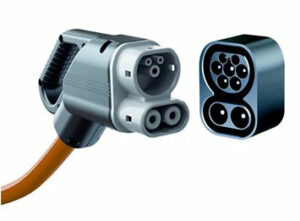
| Charging Point | Max. Power | Avg. Power | Time | Rate |
| CCS (50 kW DC) | 50 kW | 46 kW | 43 min | 190 km/h |
| CCS (175 kW DC) | 99 kW | 65 kW | 31 min | 270 km/h |
| CCS (350 kW DC) | 99 kW | 65 kW | 31 min | 270 km/h |
| Brand | Peugeot |
| Model | e-Rifter Standard 50 kWh |
| Body Style | Small Passenger Van |
| Car Engine | electric |
| Motor power | 100 |
| Maximum Torque, Nm | 260 |
| Battery Energy, kWh | 50.0 |
| Power reserve (NEDC/EPA/WLTP), km | - / - / 200 |
| Level Charging (230/400/DC), hours | - / 5.0 / 0.31 |
| Electrical Acceleration, 0-100 km/h (0-62.1 mph) in sec | 11.7 |
| Top Speed, km/h | 135 |
